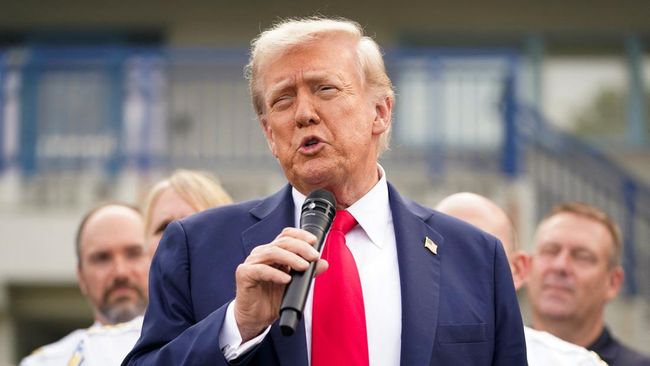seniorspectrumnewspaper – Trump administration announced it might take an equity stake in Intel in exchange for $10.86 billion in federal grants under the CHIPS Act. However, this requirement does not apply universally to all companies receiving funds under the same program. According to a government official familiar with the matter, companies such as TSMC and Micron. Which have increased their investments in the United States. Face no additional obligations or equity demands.
Read More : Google Unveils Gemini AI Tailored for Government Use
Commerce Secretary Howard Lutnick sparked controversy with comments about the treatment of NVIDIA’s H20 AI chips and criticized the Biden administration’s approach to semiconductor subsidies. “The Biden administration literally was giving Intel and TSMC money for free,” he told CNBC. “Donald Trump turns that into saying, ‘If we’re going to give you the money, we want a piece of the action.’” His remarks implied a more aggressive stance on government returns from financial support.
TSMC may have reacted cautiously to the equity debate surrounding Intel. Sources cited by The Wall Street Journal indicate that TSMC executives held preliminary discussions about potentially returning subsidies if the government insists on becoming a shareholder. TSMC received $6.6 billion for its Arizona chip fabrication plant. Which began producing chips for major clients like Apple late last year.
Despite these talks, the Trump administration has confirmed it will not seek equity stakes in TSMC or Micron. Both companies committed significant additional investments. TSMC plans to invest $100 billion over four years to build three new fabs. Two advanced packaging facilities, and a major research and development center. Micron also expanded its US operations with facilities in Idaho, New York, and Virginia.
A Commerce Department official stated, “We are not looking to take equity from TSMC and Micron,” underscoring the administration’s willingness to exempt companies with increased US investments from equity demands.
Legal Challenges Loom Over Equity Demands and New CHIPS Act Funding Plans
Despite the administration’s push for equity in some cases, legal experts suggest these efforts could face significant challenges. Contractual language for federal grants often restricts government claims to revenue sharing once profits exceed certain thresholds, complicating attempts to claim ownership stakes.
Companies must navigate these contractual frameworks carefully to avoid disputes. Many already share a portion of revenue growth with the government, which provides a financial return without requiring ownership.
Separately, the US government plans to reallocate up to $2 billion in CHIPS Act funding toward critical minerals projects within the country, Reuters reports. This shift aims to reduce US reliance on China for essential minerals widely used in electronics and defense industries.
The administration is exploring creative ways to support the critical minerals sector, though these plans remain fluid. A Reuters source explained, “The administration is creatively trying to find ways to fund the critical minerals sector,” while noting that funding allocations could change based on evolving priorities.
Read More : Trump’s Impact Seen as India-China Relations Improve
This focus on critical minerals complements semiconductor funding by strengthening the broader technology supply chain in the US. It signals the government’s intention to secure strategic resources amid growing global competition.
Overall, the Trump administration’s approach reflects a strategic shift toward maximizing US benefits from federal support. By demanding equity stakes or revenue sharing, the government aims to ensure taxpayer investments generate returns while encouraging large-scale domestic investment.
As semiconductor and minerals industries evolve, ongoing negotiations will shape how public funds influence private sector growth. The outcome will impact US technological leadership and national security in the years ahead.


